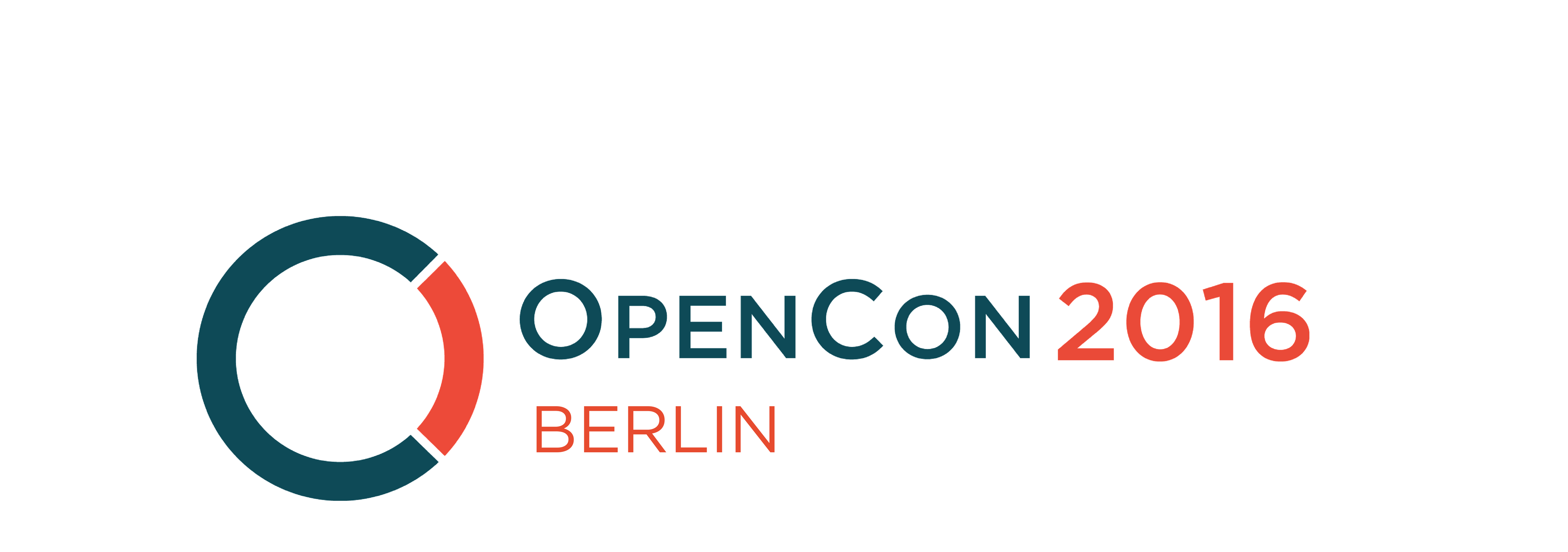***
We're kicking off OpenCon Berlin 2016 with a
There'll be plenty of options to work on a variety of projects according to skills and interest including:
- Developing the Rfigshare package (figshare new API, in potential collaboration with figshare and Ropensci).
- Continue work on the CeTrAn project using the new rfigshare package.
We are all excited by the progress made by many to make their papers fully reproducible by publishing code and data. We know how challenging it can be so we want to showcase the value of the practice, both for original authors and and as a learning experience for the reproducers.
Inspired by Owen Petchey's Reproducible Research in Ecology, Evolution, Behaviour, and Environmental Studies course, where students attempt to reproduce the analyses and figures of a paper from the raw data, we want to attempt to do the same. While they take a few months over a number of sessions, we only have a day so instead we'll be trying to do the same but with papers that have also published code.
What we love about this approach, and why we think it fits well in the space of a hack, is that it provides a low-pressure environment to actually get working with other people's code and data. Attempting reproduction provides an opportunity to test how reproducible papers are 'out of the box', enabling evaluation of how successful current practices are, identifying what worked and where the most pressing weaknessess are.
This is by no means an attempt to discredit work so consent by authors will be sought and their involvement is encouraged. We see reproduction as beneficial scientific activitiy in itself, with useful outcomes for the papers and valuable learning experiences for the participants. We hope to feedback our experiences to authors and of course spread the word on successful practice!
We want to collaborativelly collate and communicate our experiences and outputs during the session. By collating information and discussions openly through github, collaboratively contributing narrative through etherpads, we hope to end up with at least a comprehensive blog post or potentially a short paper using overleaf.
We invite nominations from anyone, especially if you would like to test one of your own papers! Either way, we encourage proponents to seek consent from the original authors for their nominations.
Current list of proposed papers
Join us at the hack to dig into exciting science, learn more about reproducibility, working with other people's code and data and more!
This is the master repo of the hack. We'll collect information on the teams and projects through issues in this repo.
We encourage authors that are keen, to be available for participants to reach out to for guidance or even just to say hello! We've set up a gitter channel as a public lobby where you can also reach the organisers prior to the hack. You can start discussions through issues in each project repo and we've also set up a public, collaborative hackpad.
We'll start by discussing the papers proposed and form into teams. We want to use github to keep track of the materials produced during the hack so we encourage teams to ensure they have someone with github skills on board.
Individuals teams are requested to create their own github repo from which to coordinate individual projects.
- Copy the text from the project registration issue template.
- Create a new issue in this (the OpenCon Berlin ReproHack) repo.
- Paste text copied from template.
- Complete details and save.
Collect any materials generated during the hack in your teams's github repo. If you're trying to reproduce a paper, we recommend you do this in a notebook or .Rmd literate programming document. Here's an examples of such an output, the raw Rmd code (link to .Rdm file) used to create it and the github directory containing materials associated with the reproduction.
We encourage teams to track their experiences. Here's a few suggestions
- use issues in your project repo to keep a record of discussions.
- to collect information use:
- project repo README or wiki.
- The central hackpad
- Your own hackpad. Just click https://public.etherpad-mozilla.org/p/OpenConBerlin2016_ReproHack and in your browser, append the URL with a project_id, eg https://public.etherpad-mozilla.org/p/OpenConBerlin2016_ReproHack_projectA
- record directly in the blogpad. Please try to keep the blogpad as structured and tidy as possible but of course feel free to add experiences and quotes directly.
The most useful output is the experiences we collect on the blogpad which will form the basis for the final blogpost.
- We ask teams to at least contribute a section around their project (copy and complete template).
- There's also a section in the INTRO where both authors and participants can provide some feedback on their motivations and experiences individually.
